ASEAN wants good US-China relations
Updated: 2016-02-12 13:53
By CHEN WEIHUA in Washington(China Daily USA)
|
||||||||
Ben Rhodes, assistant to the US President and deputy national security advisor for strategic communications and speechwriting, said China is always a subject of these types of meetings, but part of what the US tries to do is be open and transparent in its approach.
"When we look at our relationship with China, there are going to be issues where we are working very well together. Climate change, we wouldn't have had a Paris agreement without China," Rhodes said on Thursday, previewing the first US-ASEAN Summit to be held next Monday and Tuesday.
He said US and China will maintain their high-level engagement, but he noted that the two countries have had differences over the South China Sea and US freedom of navigation operations there.
While some analysts often talk about how the few ASEAN countries that have maritime territorial disputes with China want more US presence there, Rhodes believes something is missing.
"I think the bottom-line actually is that (ASEAN) countries want the US and China to have good relationship," he said.
He emphasized that what ASEAN countries mainly want is stability in their neighborhood. "They know that a constructive US-China relationship benefits that stability," Rhodes said. "So we always make the point that we are not in the business of trying to prevent China's rise. In fact, China's peaceful rise is very much in our interest, and in the interest of the whole region."
A Thursday commentary by Center for a New American Security researcher Patrick Cronin and Pereira International CEO Derwin Pereira describes Southeast Asia as the crucial link in the Indo-Pacific chain.
"How it tilts — or does not tilt — toward the United States will help determine the degree of American leverage vis-à-vis China," they wrote.
In a press briefing on Wednesday, Daniel Kritenbrink, senior director for Asian affairs at the White House National Security Council, described the US-ASEAN summit as "not about China, but about the US and ASEAN and their increasingly broad and deep strategic partnership."
"We'll touch upon China because this is Asia and China is a major player in Asia. But again, this summit is about us and about highlighting what we can do together," he said.
Kritenbrink, who served as deputy chief of mission at the US embassy in Beijing until a year ago, has witnessed President Obama and Chinese President Xi Jinping interacting on multiple occasions, including what he called "the very successful state visit last fall."
"This is a relationship where we've demonstrated we are committed to building the most constructive, positive relationship with China possible. And I think you could argue that the positive, cooperative agenda we have with our Chinese friends on a range of global issues is as successful and as broad as it's ever been," he said.
While saying that "we are exceptionally candid in confronting the many differences and tensions that exist between us," Kritenbrink emphasized that "our relationship with China is mature, it's stable, it's broad, it's complex, and we're very open and transparent about that and we would encourage our other friends in the region to do the same, and we know that they do aim to do the same."
South China Sea continues to be a source of tension for China-US relations. On Thursday, Chinese Foreign Ministry spokesman Hong Lei responded to Reuters about the discussion between the US and India in possible joint naval patrols in South China Sea.
He said no cooperation between any countries should be directed at a third party.
"Countries from outside the area must stop pushing forward the militarization of the South China Sea, cease endangering the sovereignty and national security of littoral countries in the name of ‘freedom of navigation' and harming the peace and stability of the region," he said.
"We hope that the relevant parties speak and act with caution, refrain from intervening in the South China Sea issue, and especially avoid being manipulated by certain countries and ultimately harming their own interests," Hong said.
- ASEAN wants good US-China relations
- Jury finds NYPD's Liang guilty in fatal shooting
- Major powers agree on plan to break Syria deadlock
- Munich Security Conference opens amid concerns about 'boundless crises'
- General strike against pension reform brings Greece to standstill
- Madrid airport sounds alarm after bomb threat on Saudi plane

 Spectacular Harbin snow sculptures draw holidaygoers
Spectacular Harbin snow sculptures draw holidaygoers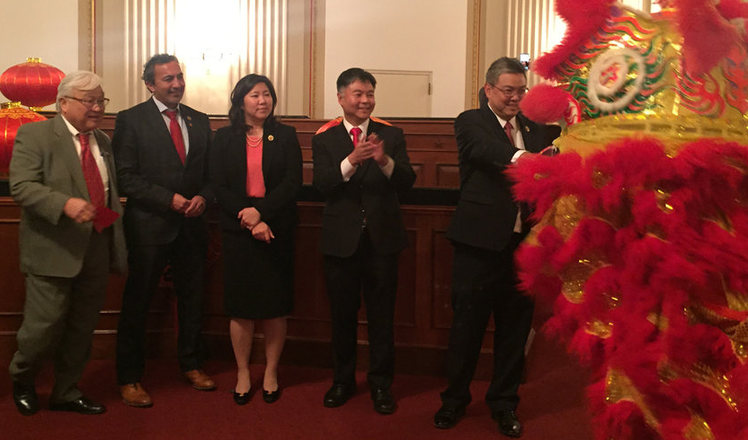
 First Capitol billing for Lunar New Year
First Capitol billing for Lunar New Year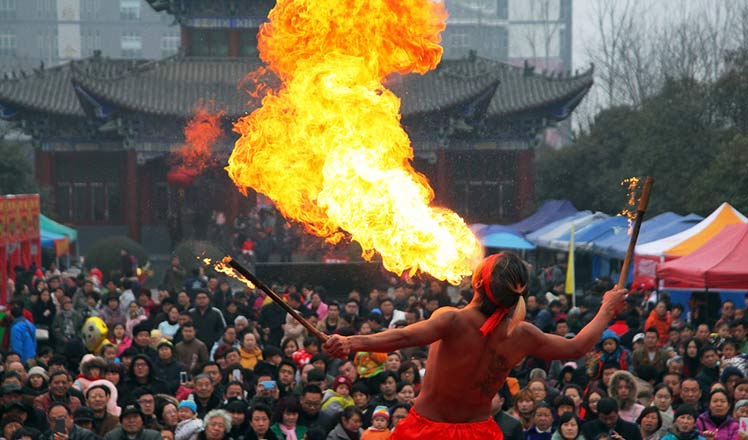
 All you need to know about China's Spring Festival temple fairs
All you need to know about China's Spring Festival temple fairs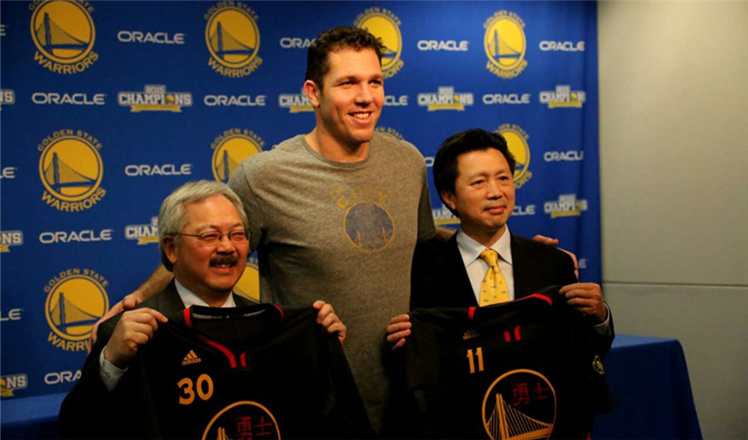
 Special souvenirs
Special souvenirs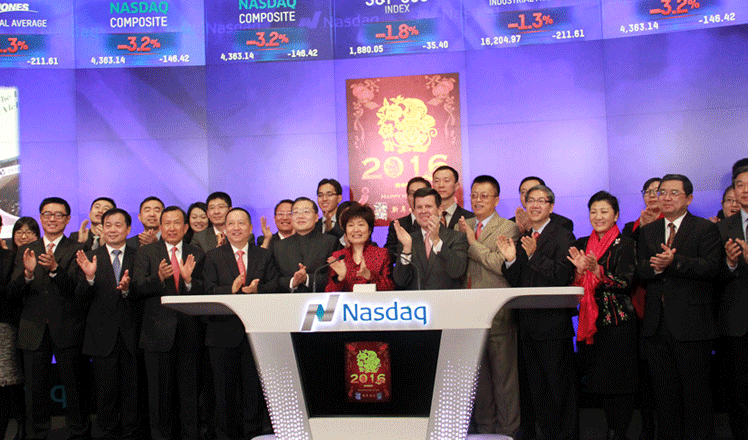
 Opening bell on Chinese New Year's Day
Opening bell on Chinese New Year's Day
 The world celebrates Spring Festival with China
The world celebrates Spring Festival with China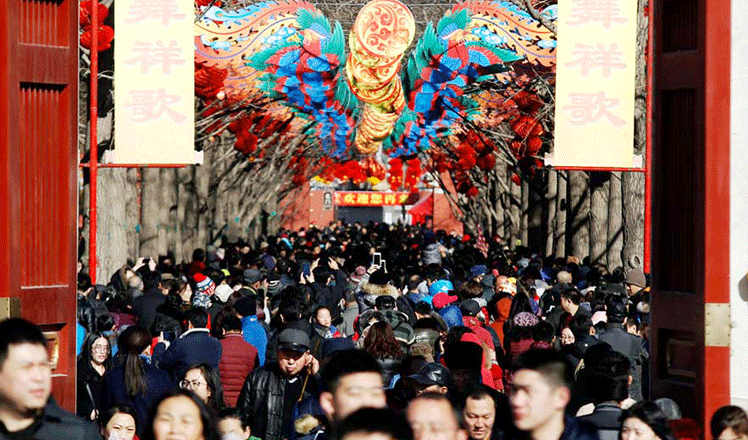
 Ditan Park temple fair embraces Chinese New Year
Ditan Park temple fair embraces Chinese New Year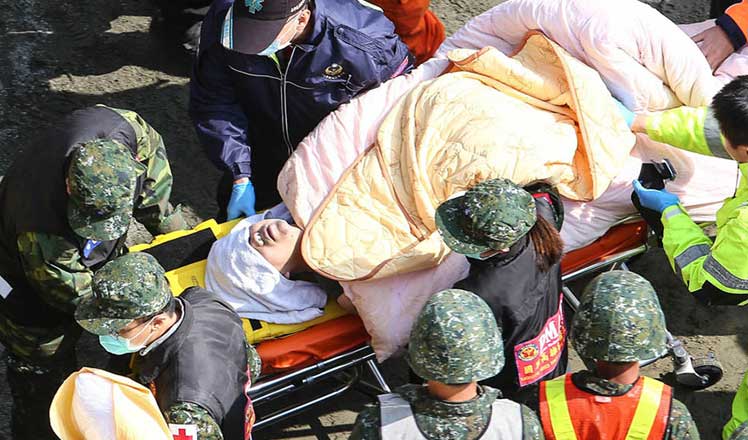
 Xi Jinping grieves over Taiwan quake, vows aid
Xi Jinping grieves over Taiwan quake, vows aid
Most Viewed
Editor's Picks

|

|

|

|

|

|
Today's Top News
National Art Museum showing 400 puppets in new exhibition
Finest Chinese porcelains expected to fetch over $28 million
Monkey portraits by Chinese ink painting masters
Beijing's movie fans in for new experience
Obama to deliver final State of the Union speech
Shooting rampage at US social services agency leaves 14 dead
Chinese bargain hunters are changing the retail game
Chinese president arrives in Turkey for G20 summit
US Weekly

|

|







